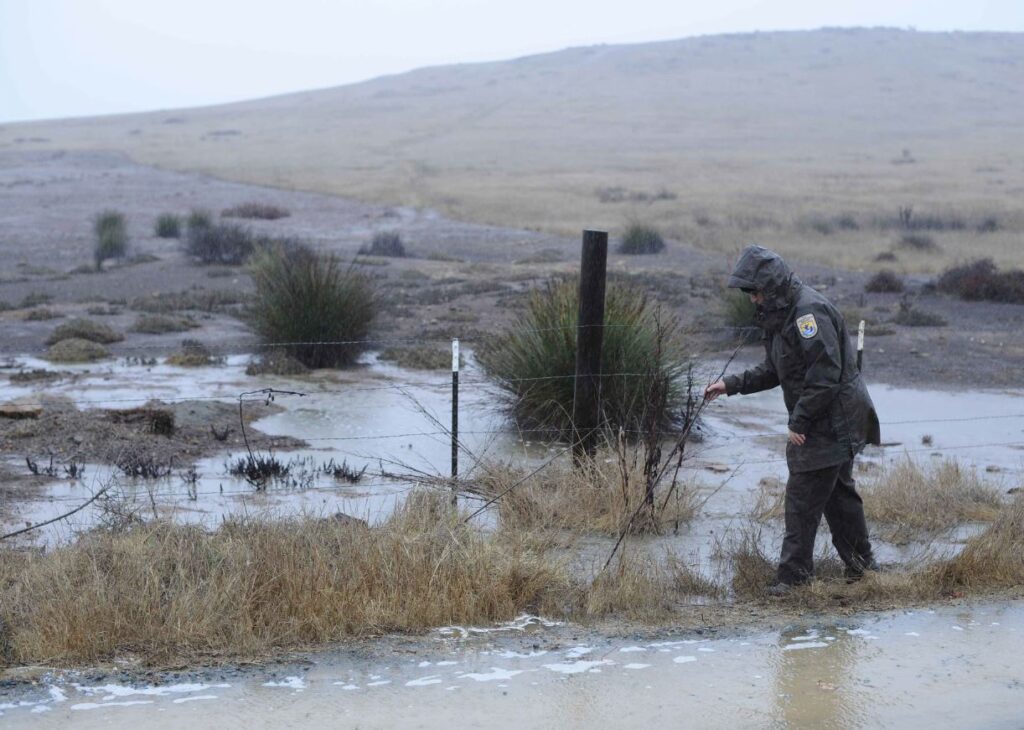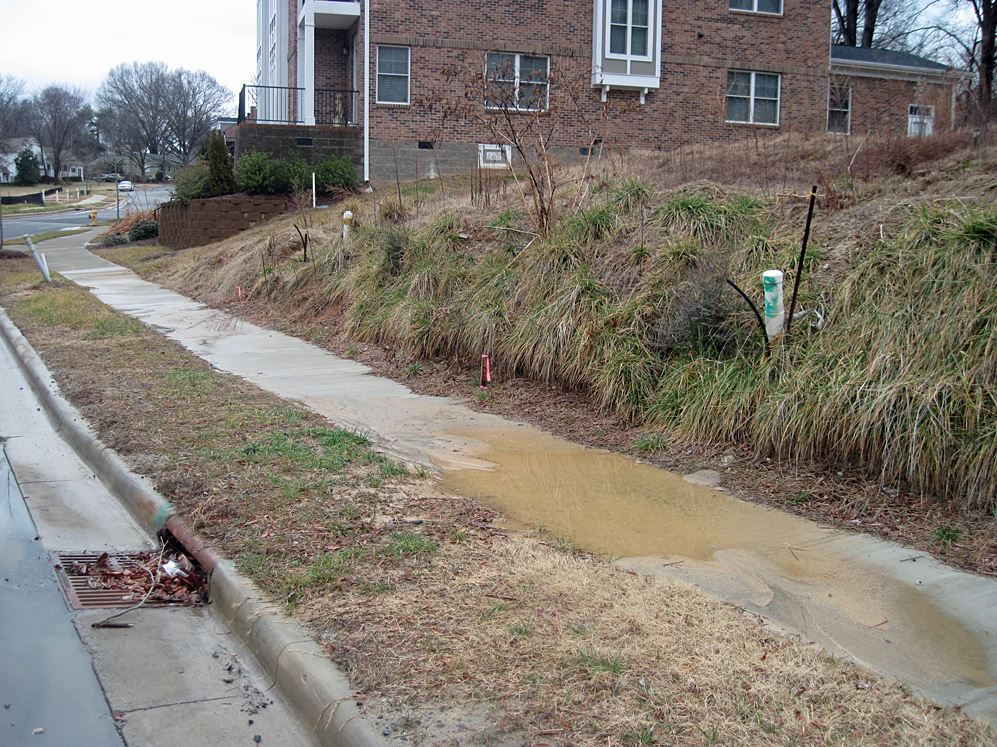Stormwater runoff is the water that runs off of impervious surfaces such as roofs, roads, driveways, and parking lots when it rains or snows. This runoff can contain pollutants like bacteria, oils, heavy metals, fertilizers, and pesticides that can be harmful to our environment if they are not properly managed.
The ultimate destination for stormwater runoff depends on where you live. In some areas, stormwater is directed into a natural body of water such as a lake or stream. Other locations may have municipal systems in place that direct the runoff to treatment plants where it is treated before being released back into the environment. In many cases though, untreated stormwater is simply discharged into local waterways without any treatment.

What are the dangers of stormwater runoff?
Stormwater runoff poses a variety of hazards to communities. Runoff increases the likelihood of flooding which destroys property as well as endangers people and wildlife in its path. Pollutants found in runoff include fertilizers, pesticides, and other chemicals used on our lawns or wash off roads during heavy rains.
These quickly accumulate in waterways where they pose a risk to aquatic life while also making drinking water less safe for humans over time.
Additionally, the heat absorbed by urban surfaces leads to greater intensity and frequency of storms due to warmer air being pushed over neighboring bodies of water. This cycle further magnifies the already present dangers from stormwater runoff.
How does stormwater runoff affect the environment?
Stormwater runoff can have a negative impact on the environment. Pollutants in runoff can contaminate drinking water sources and cause harm to aquatic life, leading to fish kills and algal blooms.
Runoff containing chemicals or bacteria can also make rivers, streams, lakes, and other bodies of water unsafe for recreational activities like swimming or fishing. It’s important to manage stormwater runoff properly in order to protect our natural resources from contamination.
How can I reduce stormwater runoff?
One of the most effective ways to reduce stormwater runoff is to choose plants that are especially suited for your region and are native to your area. Plant life such as shrubs, trees, and ground covers absorb excess water from storms, thus helping to curb flooding and other runoff issues.
Additionally, small rain gardens can be used to filter contaminants from precipitation runoff before it reaches groundwater sources. Raised beds with mulch also assist in containing runoff as can permeable pavers or paving blocks where appropriate.
Finally, building drainage systems such as retention basins or swales to catch extra water will help ease the stress on downstream systems by slowing down the flow of stormwater into larger bodies of water.
What are some ways to prevent stormwater runoff?
Stormwater runoff is one of the leading causes of pollution in our rivers, lakes, and oceans. Fortunately, there are a few preventative measures we can take to reduce the amount of stormwater runoff entering these bodies of water.
Installing permeable surfaces such as pavement with gaps or porous concrete that allows water to sink down into the soil is a simple and effective way to prevent excessive run-off.
Incorporating rain barrels or cisterns into your landscape design is an aesthetically pleasing way to store stormwater runoff from downspouts and gutters that would otherwise flow straight into drains leading to nearby waterways.

Lastly, disconnecting impermeable surfaces from your drainage systems like driveways and sidewalks greatly reduces the runoff entering our natural environment.
What is a stormwater management plan?
A stormwater management plan is an essential tool for effective conservation efforts and is often legally required in New Jersey construction projects. Soil disturbance on construction sites is a major source of erosion and stormwater pollution, so having a comprehensive SWPPP in place will ensure that construction efforts will cause the least amount of environmental damage possible. It involves the strategic consideration of urban runoff and outlines plans for controlling and reducing runoff in order to protect land, water, infrastructure, and other important resources.
Stormwater management practices often involve techniques such as wetland restoration, green infrastructure elements such as rain gardens, bio-retention cells, upgraded culverts or underground pipes, and channels that slow down floodwaters.
These environmental measures are designed to capture heavy showers before they make their way into rivers or waterways, thus minimizing damage from flooding events.
With a properly implemented stormwater management team in place, conservationists are better equipped to manage rainfall events more efficiently and protect our environment from the onset of weather-related disasters.
Final Thoughts About Stormwater Runoff
Stormwater runoff is a major issue that affects our environment in many negative ways. By implementing some simple solutions, such as installing permeable surfaces and rain barrels, we can drastically reduce the amount of stormwater runoff entering our waterways. It’s important for each of us to do our part in order to keep our environment healthy and thriving!
Need Help With A New Jersey Stormwater Protection Plan?
Call 732-370-0291 or Contact Us Now
Frequently Asked Questions
Q: Do storm drains help prevent stormwater pollution?
Yes, a storm drainage system plays a crucial role in preventing stormwater pollution. A storm drain will help prevent stormwater pollution by collecting rainfall and runoff from streets and sidewalks and redirecting it to local waterways.
Without storm drains, all of that rainwater and runoff would end up flooding city streets and polluting our waterways with trash, pesticides, oil, chemicals, and other pollutants.
Q: Will a wastewater treatment plant treat polluted stormwater?
It depends on the plant. Many wastewater treatment plants are not designed to handle polluted stormwater and will not be able to treat it properly.
If your municipality doesn’t have a separate stormwater drainage system, the polluted water will likely end up in the local wastewater treatment plant.
Q: Will the environmental protection agency step in if there is too much-polluted runoff?
The Environmental Protection Agency (EPA) is responsible for regulating the discharge of pollutants into bodies of water and enforcing the Clean Water Act.
This means that if a company or other entity is causing excessive runoff – meaning the release of pollutants – into a body of water that exceeds what is regulated, then the EPA may step in.
This could include restrictions on the activities taking place or issuing fines to those responsible.
It is essential for these regulations to be followed as polluted runoff can have significant negative impacts on drinking and recreational water sources as well as ecological habitats, harming wildlife and causing health risks for humans.

